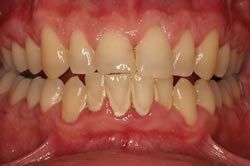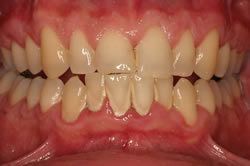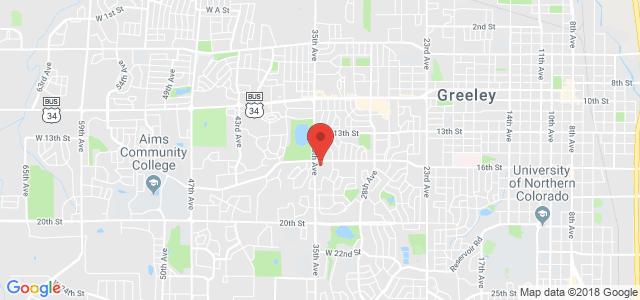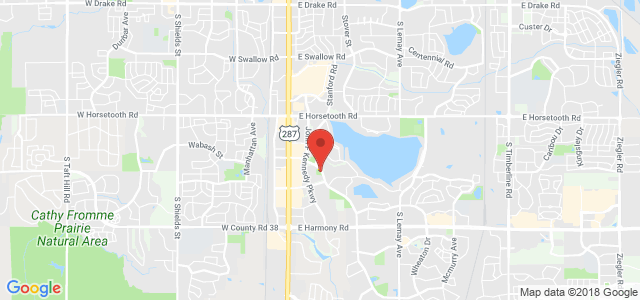At Northern Colorado Periodontics, we understand the significant negative effects that periodontal disease can have on your overall health. Our team in Greeley and Fort Collins, CO, can help you achieve and maintain good oral hygiene, and to help you understand everything you need to know about gum disease. We can also provide the effective treatment you need to safeguard your oral and overall health.
The Importance of Healthy Gums
Your gums exist to protect the roots of your teeth from harmful bacteria. Healthy gums and bone anchor your teeth firmly in place to support chewing and provide a youthful, vibrant appearance. If your teeth and gums are not kept healthy, chronic bacterial infections called gingivitis and periodontitis (gum disease) can develop. By age 45, more than 50 percent of people have some form of gum disease, according to Centers for Disease Control (CDC) studies, however, some forms of aggressive periodontitis can affect younger patients as well. If left untreated, gum disease progressively deteriorates the gums and bone supporting your teeth, possibly leading to tooth loss and other serious health concerns.
Early Detection and Gingivitis
 Although gum disease affects more than half of the adult population, those affected often do not know they have the disease because it is usually a painless or silent process. This means that you may have gum disease and not even know it until it’s too late to treat!
Although gum disease affects more than half of the adult population, those affected often do not know they have the disease because it is usually a painless or silent process. This means that you may have gum disease and not even know it until it’s too late to treat!
So, how do you know if you have gum disease? Early gum disease is called gingivitis. It begins when bacteria in the saliva forms plaque around the teeth which causes the gums to become inflamed. Plaque and its toxic by-products irritate the gums, making them red, tender, and more apt to bleed.
 In many people, gingivitis may progress to periodontitis over time. When periodontitis occurs, the gums lose their attachment to the teeth allowing bacteria to further penetrate the tissue. As the body attempts to get rid of these bacteria and their toxic by-products, it begins to destroy bone. This bone loss may cause the gums to recede giving the appearance of long, unsightly teeth. In advanced cases, bone loss may lead to loosening of the teeth and eventually, tooth loss. As a matter of fact, periodontitis is the number one cause of tooth loss in adults!
In many people, gingivitis may progress to periodontitis over time. When periodontitis occurs, the gums lose their attachment to the teeth allowing bacteria to further penetrate the tissue. As the body attempts to get rid of these bacteria and their toxic by-products, it begins to destroy bone. This bone loss may cause the gums to recede giving the appearance of long, unsightly teeth. In advanced cases, bone loss may lead to loosening of the teeth and eventually, tooth loss. As a matter of fact, periodontitis is the number one cause of tooth loss in adults!
Common Causes
Poor oral hygiene is the leading cause of gum disease in most patients. However, various behaviors and medical conditions can also contribute to periodontal disease such as smoking and tobacco use, diabetes, stress, certain medications, tooth grinding, and poor nutrition. Dr. Shumaker and Dr. Allen will address these contributors in conjunction with your treatment. It is also now believed that uncontrolled periodontal disease is a risk factor for heart disease and stroke, as recognized by the American College of Cardiologists. Brushing and flossing give you both healthy teeth and a healthy heart!
Signs and Symptoms
How can you tell if you have periodontal disease? Many times the symptoms are invisible at early stages and may only be detected by your dentist or hygienist. At advanced stages symptoms include:
- Bleeding gums during brushing or flossing
- Swollen, sore, or very red gums
- Chronic bad breath or bad taste in your mouth
- Loose or shifting teeth
- The appearance of pus from depressed gums
Using a small instrument to gently measure the gums around the teeth and cutting edge digital imaging, Dr. Shumaker can accurately diagnose the presence and progression of any periodontal disease.
Why Choose Us?
The good news is that periodontitis is completely treatable and manageable by periodontists such as our doctors with nearly a 90 percent success rate of treated and maintained patients losing no teeth in long-term studies! We can save your teeth! Using a small instrument to gently measure the gums around the teeth and cutting edge digital imaging, Dr. Shumaker and Dr. Allen can accurately diagnose the presence and progression of any periodontal disease.
Get Diagnosed and Treated Today
Following a thorough examination, we will discuss our various periodontal disease treatments and set up a step-by-step guide to help you achieve improved oral health. To set up a time to meet with us for a consultation, an initial exam, or to begin treating you, please contact us directly through the site, or call us at (970) 207-4061.




